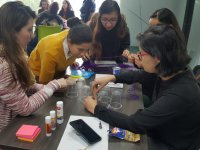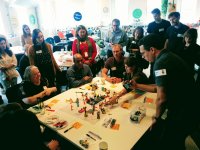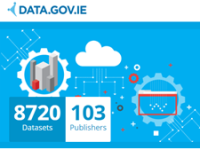Decidim est une plateforme numérique imaginée par la mairie de Barcelone dès 2016 pour créer et coordonner des espaces et des processus participatifs, qui vise à étendre et faciliter l’accès à la participation citoyenne en vue de la co-construction et de la co-production des politiques publiques. Il s’agit d’un projet européen open source : son code est ouvert et libre ; en d’autres termes, tout le monde peut le voir, l’utiliser, le copier ou l’enrichir.
Innovation Tag: Public Policy
Mental health issues affect about 1 in 10 young people in the UK. MH:2K gives young people a leadership role in solving this most important of challenges. It empowers 14-25 years old to identify the mental health issues they see as most important, engage their peers in exploring these topics, and work with decision-makers to make recommendations for change.
The sick leave e-certificate was introduced to reduce the administrative burden related to the processing of sick-leave paper certificates, both for institutions and inhabitants, as well to provide complete data on issued certificates in Latvia. Since 2018 sick-leave certificate are issued only electronically in the national E-health system which provides processing and circulation of certificates electronically among health care institutions, patients, employees and social insurance…
This online course seeks to foster an innovation ecosystem in Bogota’s public offices, offering Bogota’s public officials the tools to gain capacities for public innovation.
Through practical exercises that are related to drawing and mapping, among others, public officials gain insight on ways to approach the users of public services.
The Australian Government piloted and developed MyService, a simple, intuitive and innovative digital solution significantly improving veterans' experience when accessing Health Care, Compensation, Income Support and Commemorations for war veterans, members of the Australian Defence Force, their dependants and certain members of the Australian Federal Police. It empowers veterans by helping them get the assistance they need with less stress and increased trust in the outcomes.
Government of West Bengal provided 7.0 million bicycles to students of class IX to XII standard in Government run and aided schools as mobility support under “Sabooj Sathi” scheme – a pioneering initiative towards universal access to higher education.
In 2015, a constitutional reform on transparency allowed the INAI to propose a specific set of actions to adopt and institutionalize open government principles in Mexico. Thus, it designed a comprehensive strategy that mainly consisted of the implementation of provisions, methodologies and public policies to guide and articulate the design, implementation, and operation of open government in public institutions, the three levels of government and the three branches of government nationwide.
A collaboration between government and community, Systemic Design eXchange (SDX) is an Edmonton-based community of practice for people interested in learning about systemic design as a methodology for addressing complex, real world issues. Together, we explore systems thinking, design thinking, and change lab approaches. With a bias towards learning by doing, SDX aims to be a watering hole where multiple sectors can come together, learn together, and act together.
The National Secretariat of Technical Planning in Paraguay created the first National Volunteer Program Arovia, a public volunteer platform that promotes increased access to information on public services and opportunities for the implementation of grassroots projects that strengthens citizen participation and local governments structures. Arovia volunteers are young professionals who bring innovative social interventions to territories prioritized within the national poverty reduction strategy.
Ireland’s Open Data Initiative (ODI) is a key element of the government’s Public Service Reform activities. It aims to increase transparency, stimulate new business, build trust in Government and improve the lives of citizens by delivering better services. The ODI involves significant engagement with citizens, business, the data community, researchers and public bodies. Over 8700 datasets from 100 publishers are available on the ODI Portal which provides free access to data via a central…






